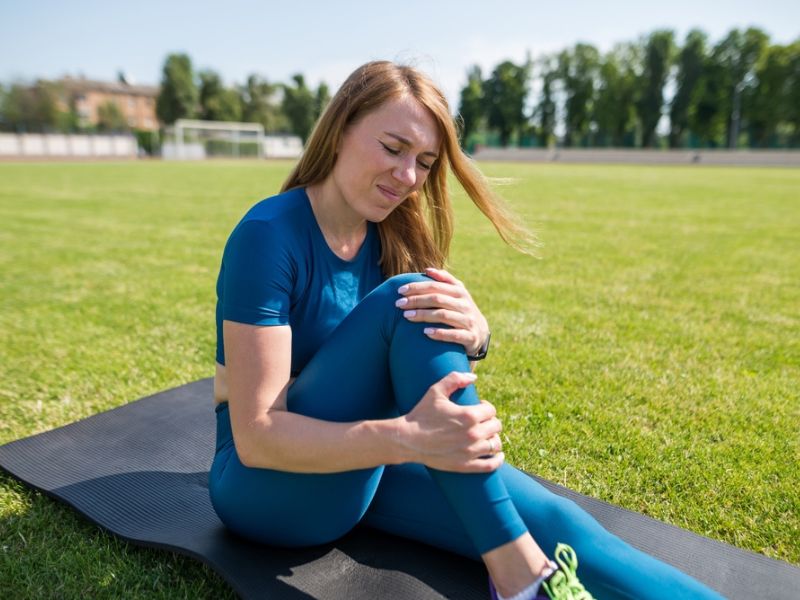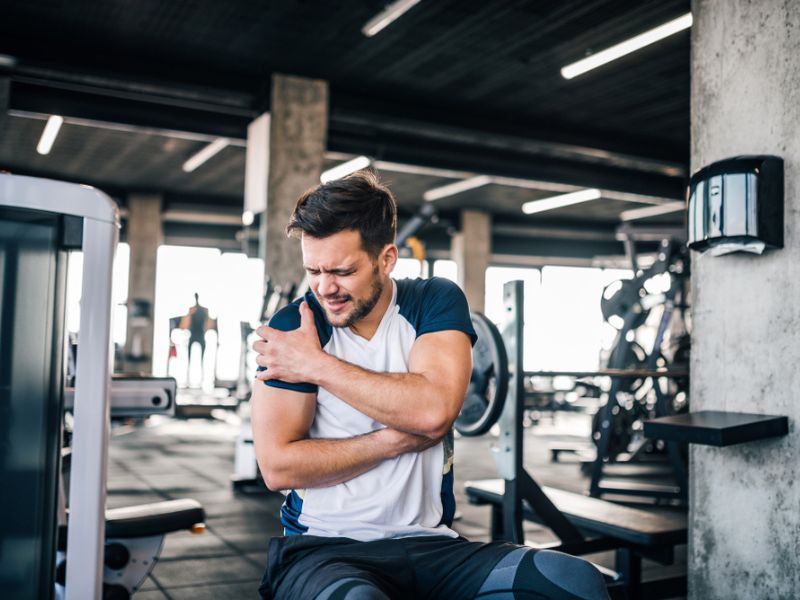Physical therapist Jasmine Marcus told Insider why pain is the worst thing to happen during your workout. She said, “Pain is your body’s way of protecting you, and it most likely means you are injuring yourself.”
Marcus said you could continue working out if the pain is localized to one body part, and you can finish the workout, but you should consult a doctor if you are having problems with anything else. It’s okay to keep working out your lower body if your shoulder is bothering you, but you should avoid irritating it further with shoulder presses. Make sure you eventually seek treatment for your shoulder.

Image Credit: Shutterstock/TaniaKitura
Long-Term Exercise Shouldn’t Make You Dizzy Or Weak
It’s not a good sign if you feel dizzy or weak after your workout. Physical therapist Mitchell Starkman told Insider that dizziness is normal but shouldn’t last. At the same time, many people become temporarily dizzy while training during position changes. It’s always a good idea to consult your doctor if you’re consistently dizzy when working out.
Overtraining May Be Making You Sleepless
Sleep is thought to improve with exercise, but if you stay up all night tossing and turning, you may be overtraining. Chelsea Axe, a certified strength and conditioning specialist, explained to Insider that insomnia occurs when your sympathetic nervous system is working poorly. Anaerobic exercises like sprinting and hefty resistance training like weight lifting are more closely linked to an overactive sympathetic nervous system.

Image Credit: Shutterstock/Branislav Nenin
Too Much Exercise Can Lead To Depression Or Irritability
We feel relaxed and relieved when we sweat because endorphins are released. It has been found that too much exercise makes people anxious or depressed. Parasympathetic overtraining can occur from too much aerobic activity. It causes fatigue, depression, and poor sports performance. Excessive cortisol levels in the body can also cause adrenal dysfunction and mood disorders in overtrained athletes.
Exercise Overdoes Your Heart
Your heart rate should fluctuate at rest if you’ve overdone your workout routine. When you exercise for the first time, your resting heart rate will vary as your body gets into shape. Overtraining can be detected early by gauging heart rate variability among seasoned exercisers.